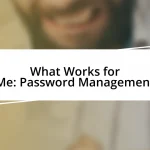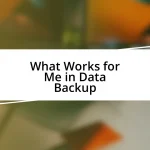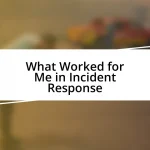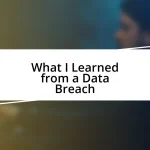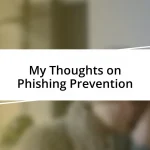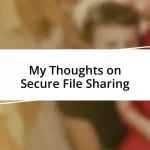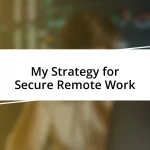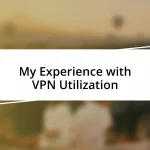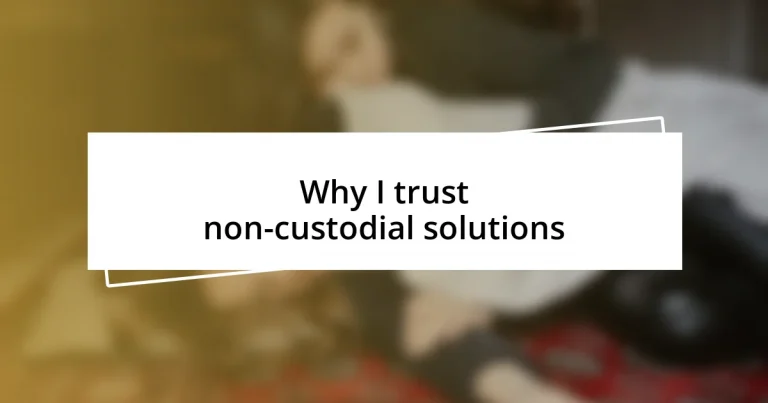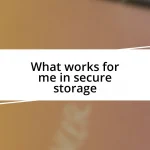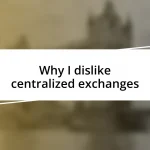Key takeaways:
- Non-custodial solutions grant users full control over their digital assets, enhancing security and personal responsibility.
- The transition to non-custodial wallets fosters education about blockchain technology and empowers users to take charge of their financial futures.
- Common misconceptions include the complexity of non-custodial wallets, lack of customer support, and the belief that they are less secure than custodial options, all of which are debunked through personal experience.
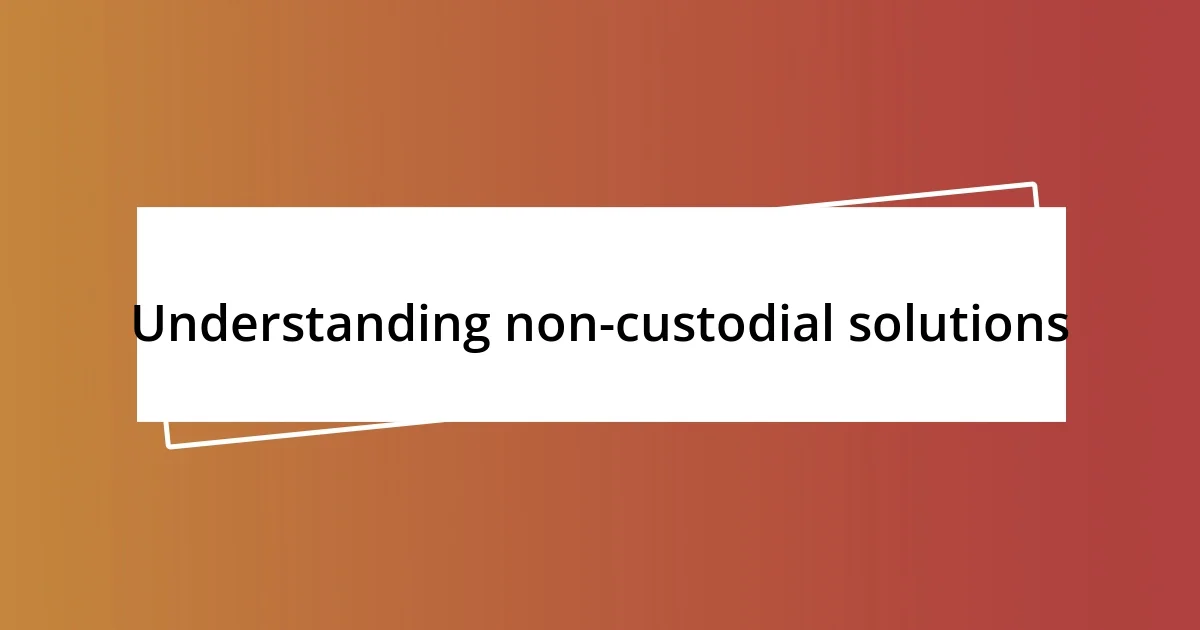
Understanding non-custodial solutions
Non-custodial solutions allow users to maintain control of their assets without relying on a third party. Recently, a friend shared how he lost access to funds due to a custodial wallet service that went offline unexpectedly. It made me realize how crucial it is to own my keys, as it not only protects my assets but also fosters a deeper sense of ownership and responsibility.
In my experience, using non-custodial wallets can feel like a breath of fresh air. With so many stories about data breaches and hacking in the custodial space, I often ask myself: why would I want to put my trust in someone else? Every time I access my wallet, I feel empowered, knowing that no one holds the keys to my financial future but me.
Moreover, embracing non-custodial solutions comes with a learning curve. I remember the first time I set up my own wallet; it was daunting, but as I navigated the process, I felt a rush of excitement about taking charge. This ownership not only enriches the experience but also encourages me to stay informed and engaged with the technology. Isn’t it inspiring to think about how much power we can hold in our own hands?
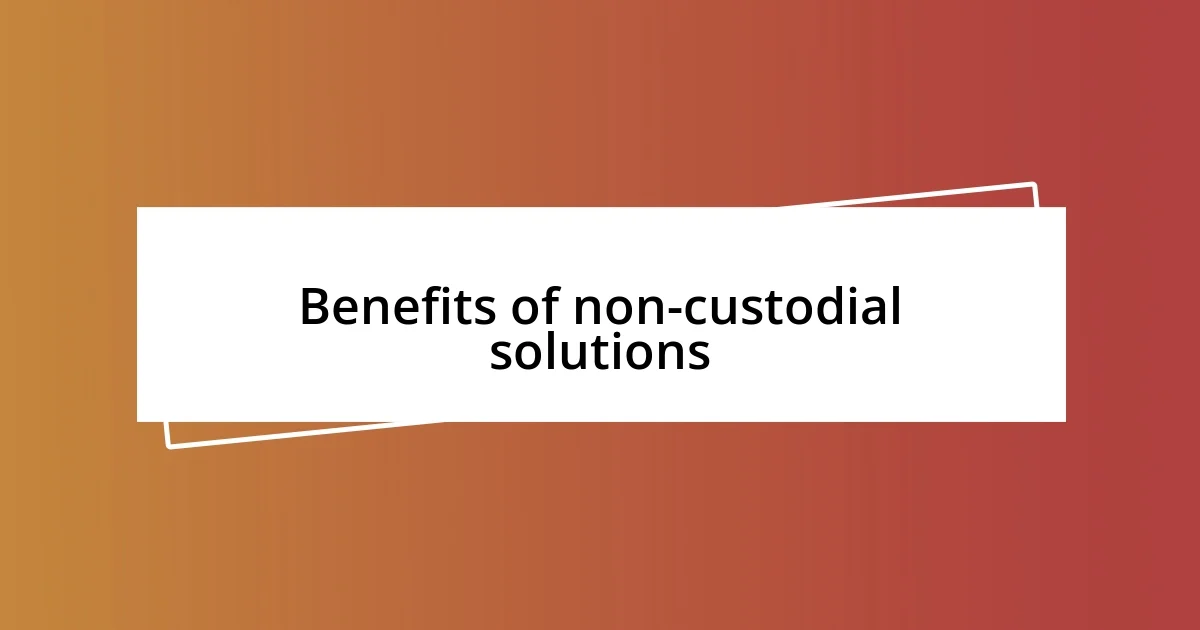
Benefits of non-custodial solutions
Non-custodial solutions empower users by granting complete control over their digital assets. When I first transitioned to this model, I felt an immediate sense of liberation. It reminded me of the sensation I had during my first driving lesson—suddenly, I was in the driver’s seat, making decisions about my financial journey without worrying about someone else steering the wheel.
One of the primary benefits I’ve discovered is the enhanced security non-custodial solutions offer. Unlike custodial services, where a single breach can lead to the compromise of countless accounts, I feel a sense of safety knowing that my assets are only as vulnerable as my personal practices. Changing passwords, using two-factor authentication—these all culminate in a heightened awareness of security that I hadn’t experienced before.
Moreover, opting for a non-custodial solution encourages ongoing education about the technology behind it. The process of managing my wallet has taught me more about blockchain and cryptocurrencies than I ever anticipated. It’s exhilarating to dive deeper into these subjects, broadening my knowledge, and ultimately becoming a more informed participant in the digital economy.
| Aspect | Non-Custodial Solutions |
|---|---|
| Control | Full control over assets |
| Security | Improved safety from breaches |
| Education | Encourages learning about technology |
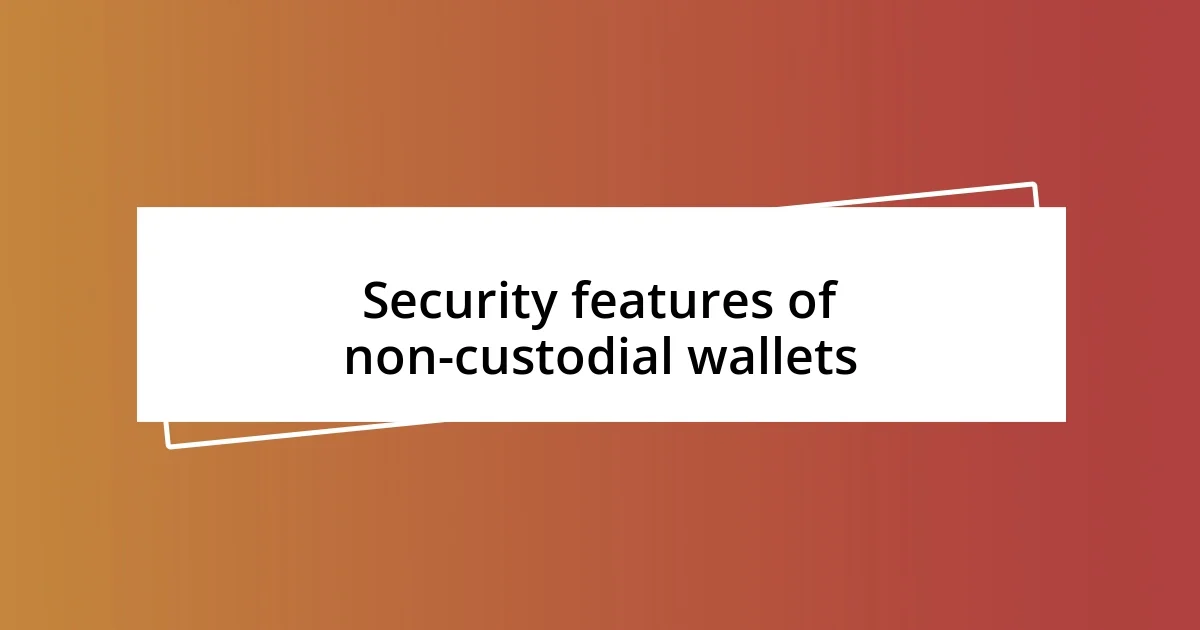
Security features of non-custodial wallets
When it comes to the security features of non-custodial wallets, I appreciate the layers of protection they inherently provide. One standout feature is the control over private keys. Unlike custodial solutions where your keys are managed by a third party, with a non-custodial wallet, you possess your own keys. I still remember the relief I felt when I made this switch; it was as if a weight had been lifted, and the control restored a sense of security that I hadn’t felt before. Knowing that my assets aren’t just a few clicks away from potential hackers gives me peace of mind.
Here are some key security features that make non-custodial wallets appealing:
- Private Key Ownership: You control your own private keys, meaning only you can access your assets.
- Enhanced Encryption: Strong encryption methods protect your data against unwanted access.
- Decentralization: By eliminating middlemen, you reduce the risk of centralized points of failure.
- Two-Factor Authentication: Many non-custodial wallets offer this feature, adding an extra layer of protection against unauthorized access.
- Backup Options: Non-custodial wallets often allow you to create backups of your wallet information, so you can recover your assets even if your device is lost.
In my journey, I’ve put some of these features to the test. I once accidentally deleted my wallet app and panicked. But then I remembered I had backed up my recovery phrase in a secure location. That experience taught me the value of preparation and solidified my trust in non-custodial solutions. I can’t emphasize enough how empowering it feels to know that my diligence in securing my assets has created a fortress around my financial future.
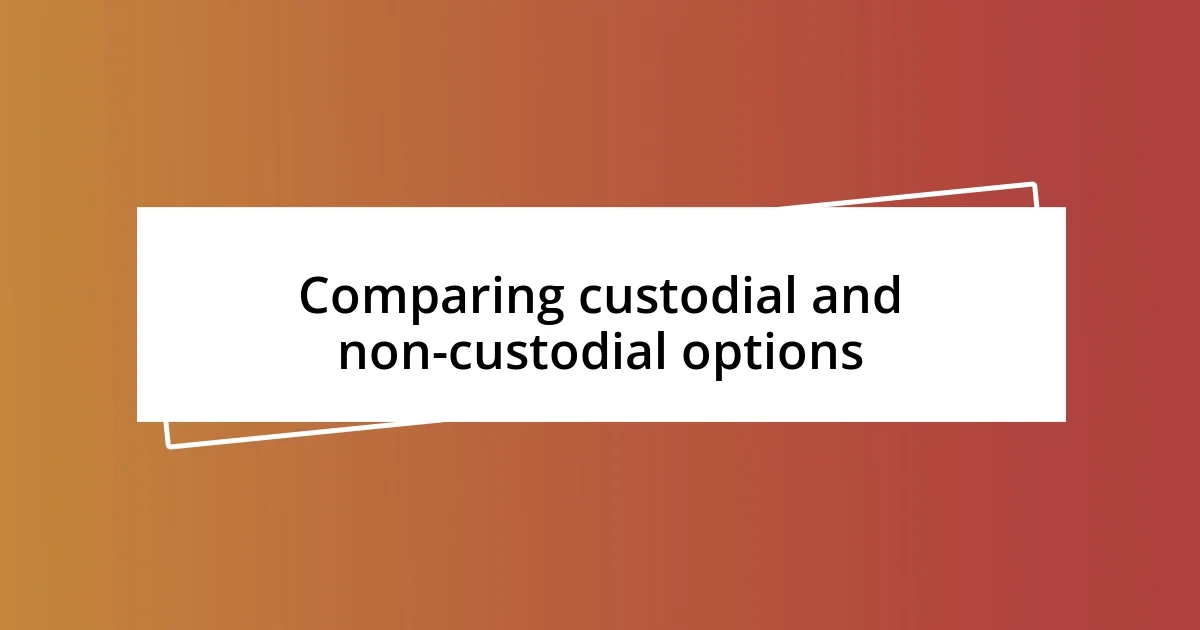
Comparing custodial and non-custodial options
When weighing custodial versus non-custodial solutions, one striking difference lies in the control of assets. It’s akin to owning a house versus renting an apartment; the former gives you the freedom to decorate and modify as you wish, while the latter requires you to follow someone else’s rules. I remember the first time I withdrew my funds from a custodial service—it felt more like waving goodbye without a clear view of where they were heading. In contrast, with non-custodial solutions, I’ve found comfort in knowing that my assets are right where I want them—secure and accessible only to me.
The security aspect is, undoubtedly, a game-changer. Custodial services can be appealing for their convenience, but I have experienced firsthand how risky it can be to rely on a third party. Not long ago, a friend had his account compromised simply because he didn’t notice a weak link in the custodial chain. That unfortunate episode was a wake-up call not just for him but for me as well; it reinforced my stance on self-custody. With non-custodial options, I run my own security checks—keeping a watchful eye on my private keys elevates my peace of mind.
From my perspective, the educational component of using a non-custodial solution is invaluable. When I transitioned, it was like stepping into a library filled with resources just waiting to be explored. Can you imagine combining financial autonomy with a crash course in blockchain tech? It’s exhilarating! Each time I navigate my wallet, I learn something new about the mechanics of my investments. For me, this isn’t just about managing assets; it’s about becoming an informed player in this ever-evolving digital landscape.
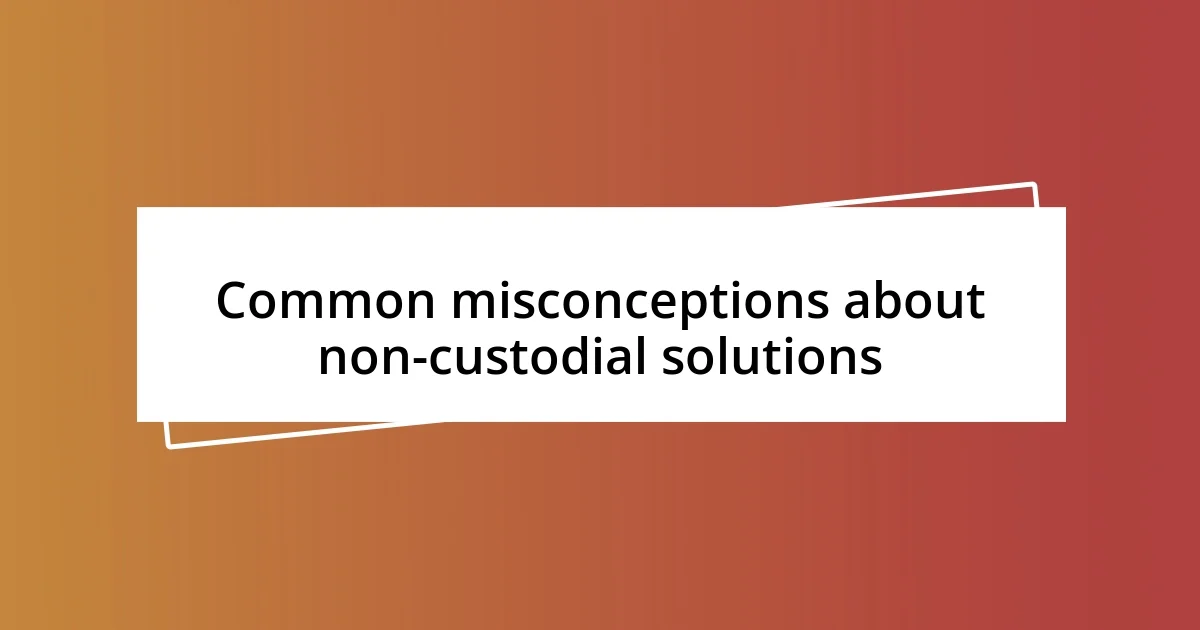
Common misconceptions about non-custodial solutions
It’s a common misconception that non-custodial solutions are overly complicated and only for tech-savvy individuals. I understand why this perception exists—my own initial hesitation stemmed from a fear of not being able to navigate the technical aspects. But I’ve learned that these solutions are designed with user experience in mind. In fact, I found the interface of my non-custodial wallet to be quite straightforward, almost like using a smartphone app. Have you ever felt overwhelmed by technology, only to be pleasantly surprised by how intuitive it can be? That was my experience, and it might just be yours too.
Another myth I often encounter is the belief that non-custodial wallets lack customer support. While it’s true that, in contrast to custodial services, you don’t have a dedicated support team available, I see this differently. It pushed me to educate myself and engage with a community of users who share valuable insights. I remember a time when I faced a minor issue; instead of waiting on hold, I found a plethora of forums and guides that not only solved my problem but also deepened my understanding of the system. Isn’t it reassuring to know that, instead of being reliant on a single point of failure, you can lean on a community that’s just as invested in this journey?
Many also mistakenly believe that non-custodial solutions are less secure than their custodial counterparts. This couldn’t be further from my experience. I recall a cybersecurity incident involving a friend’s custodial wallet; it left him devastated when he lost his assets overnight. Meanwhile, I’ve felt secure knowing that my private keys remain exclusively in my possession. Doesn’t it feel good to take control of your financial future instead of putting it in someone else’s hands? Embracing non-custodial options has empowered me, reinforcing my belief that you can achieve greater security by being proactive and responsible.
